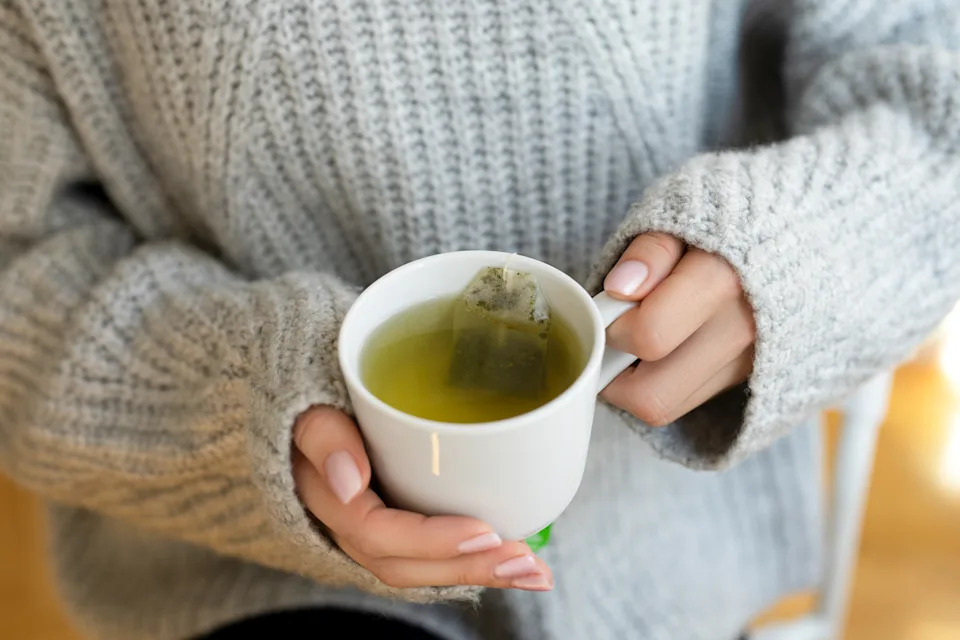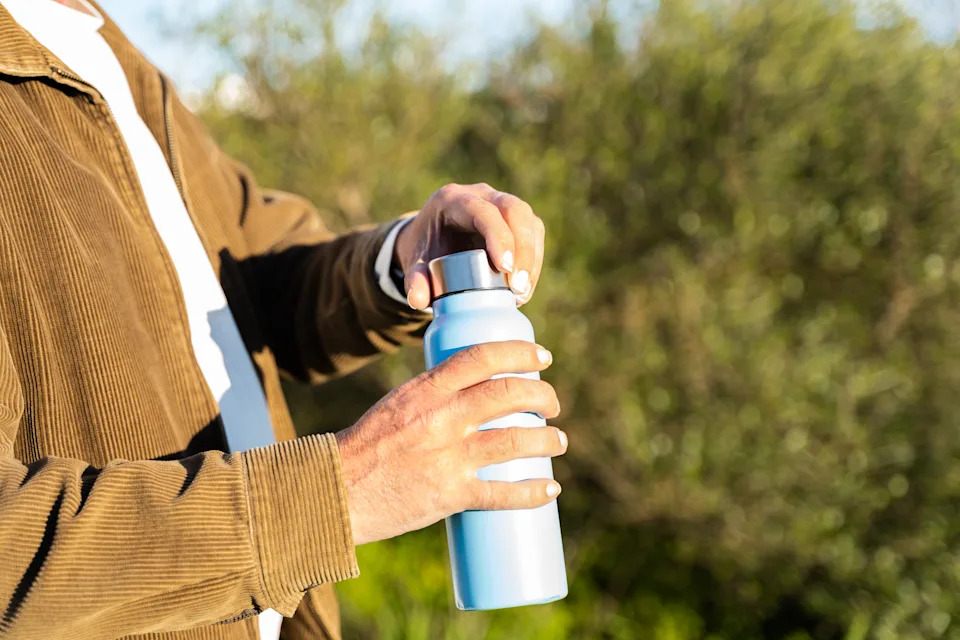When the weather turns, the days get shorter and our social calendars dwindle, it can make us feel as grey as the skies outside. But for some, it goes deeper than that.
Seasonal affective disorder (SAD), a type of depression that comes and goes in a seasonal pattern, impacts roughly two million people in the UK – and yet, it is still not fully understood what causes it.
One of the main theories behind SAD, however, is that a lack of sunshine may stop the hypothalamus part of the brain (which controls mood and appetite) from working. This may then impact our melatonin and serotonin levels, hormones that affect sleep and mood, as well as our circadian rhythm.
It’s not all doom and gloom, though. There are certain steps you can take – and things to avoid – to reduce the effects of SAD.
4 mistakes that could be making your SAD worse
Our diet can massively impact our mood. (Getty Images)
1. Poor diet
Poor diet can lead to a range of hormonal and neurological side effects. While it may be tempting to reach for comfort foods over nutritionally diverse options at this time of year, this habit can wreak all kinds of havoc with your body and brain and impact your mood.
One way to counteract this is to temporarily boost your metabolism, circulation and energy expenditure with spicy foods. As Hannah Belsham, health and wellbeing physiologist and nutritionist at Nuffield Health, explains: “This mild ‘metabolic kick’ raises body temperature, heart rate, and oxygen consumption, helping counteract the lethargy that comes with darker mornings and cooler weather.
“Capsaicin also promotes the release of endorphins and serotonin, the body’s natural ‘feel-good’ chemicals, providing a subtle mood lift. Additionally, spices like turmeric and ginger have anti-inflammatory properties and may support gut and brain health, both key to sustained energy and mood balance,” she adds.
Other spices to try and incorporate into your diet include:
Cinnamon – Helps regulate blood glucose levels, preventing post-meal energy crashes. It also contains polyphenols that support cardiovascular and metabolic health.
Paprika and harissa – These milder spices provide antioxidants, such as carotenoids, which help reduce oxidative stress while adding flavour variety without irritating the digestive system.
And here is a guide on the foods that can help keep you stay warm in the winter.
2. Not getting enough exercise and daylight
Are you getting our in the daylight enough? (Getty Images)
BACP-registered therapist Nikki Howes previously told Yahoo UK that spending as little as five minutes outside every day can help lift your spirits. If you can’t get outside, even sitting by a window can help.
“Even in winter or on cloudy days, exposure to natural light can help regulate your mood. The longer you stay outside, the greater the benefits. A short walk in a park or simply sitting on your balcony can work wonders,” she says.
Exercise is also known to boost the mood and Emma Kuwertz-Normal, national swim manager at Nuffield Health, stresses the benefits that swimming can have – particularly at this time of year.
Not only does the expert say it’s a gentle form of exercise that builds strength and boosts fitness without putting stress on your joints, it also releases endorphins and can help improve sleep.
“The combination of the movement and the calming effect of water helps settle the nervous system, making it easier to switch off and get proper rest – especially useful when winter fatigue kicks in,” she adds.

Perhaps you’ve cancelled plans or haven’t made as many as usual. (Getty Images)
3. Cutting back on socialising – or doing too much
It can be really tempting to call off plans if the weather is miserable, but by decreasing our social activities at this time of year, we may be inadvertently hindering our mood.
For example, studies have shown that when adults feel depressed more frequently than they usually do, they are more likely to be socially disconnected than usual at a later time.
According to mental health charity Mind, though, re-arranging stressful activities and events for a different time can help if you’re feeling low or overwhelmed. They recommend instead focusing on relaxing activities and making the most of your spare time, filling it with things you enjoy.

Make sure you’re staying hydrated. (Getty Images)
4. Dehydration
While a lot of us stay hydrated in the summer, we can neglect this habit when the weather turns – which can also impact our mood.
Belsham explains: “In colder months, our natural thirst response diminishes by up to 40%, meaning we often don’t feel thirsty even when our body needs fluids. The dry, heated indoor air also increases water loss through breathing and the skin. Add in caffeine, alcohol, and comforting salty foods that are common this time of year and dehydration can quietly creep in, even when you’re not sweating.”
Even mild dehydration (as little as 1–2% body weight loss) can impair concentration, alertness, and mood, per the expert.
“It also affects the body’s ability to regulate temperature and deliver nutrients to cells, resulting in lower energy levels and duller skin. The skin relies on adequate hydration to maintain elasticity and barrier function – dehydration reduces circulation to the epidermis, leaving it feeling dry or tight,” she notes.

You can also try adding electrolytes to your water. (Getty Images)
To counteract this, you can boost your hydration levels by drinking around 2-2.5 litres of water every day. Other ways include:
Herbal teas – Naturally caffeine-free and over 95% water, these teas hydrate while offering antioxidants and plant compounds that support digestion and calm the nervous system.
Clear soups and broths – With up to 92–95% water content, soups and broths made with vegetables and lean protein are hydrating, nutrient-dense, and warming. Adding vegetables such as carrots, celery, and leafy greens not only boosts the nutrient profile but also contributes additional water and fibre for digestive health and satiety.
Watery fruits and vegetables – Cucumbers, oranges, melon, and soups made with tomatoes or courgettes contribute significantly to hydration. These foods can provide up to 20–30% of daily water intake.
Electrolytes – Electrolytes, mainly sodium, potassium, magnesium, and calcium, are minerals that carry an electrical charge and are essential for muscle contractions, nerve function, and maintaining fluid balance. While electrolyte supplements seem to be marketed heavily right now as a ‘daily necessity’, most people do not need added electrolytes unless they’re sweating heavily from exercise, illness, or heat exposure.
Where to get help
You should see a GP if you think you have SAD and you’re struggling to cope. They can conduct a mental health assessment and may ask about your mood, diet, lifestyle, and other relevant factors.
Light therapy is one treatment method that the NHS suggests. This involves sitting by a so-called “light box” for a set amount of time each day.
Shop SAD lamps and alarm clocksRead more about seasonal health:
